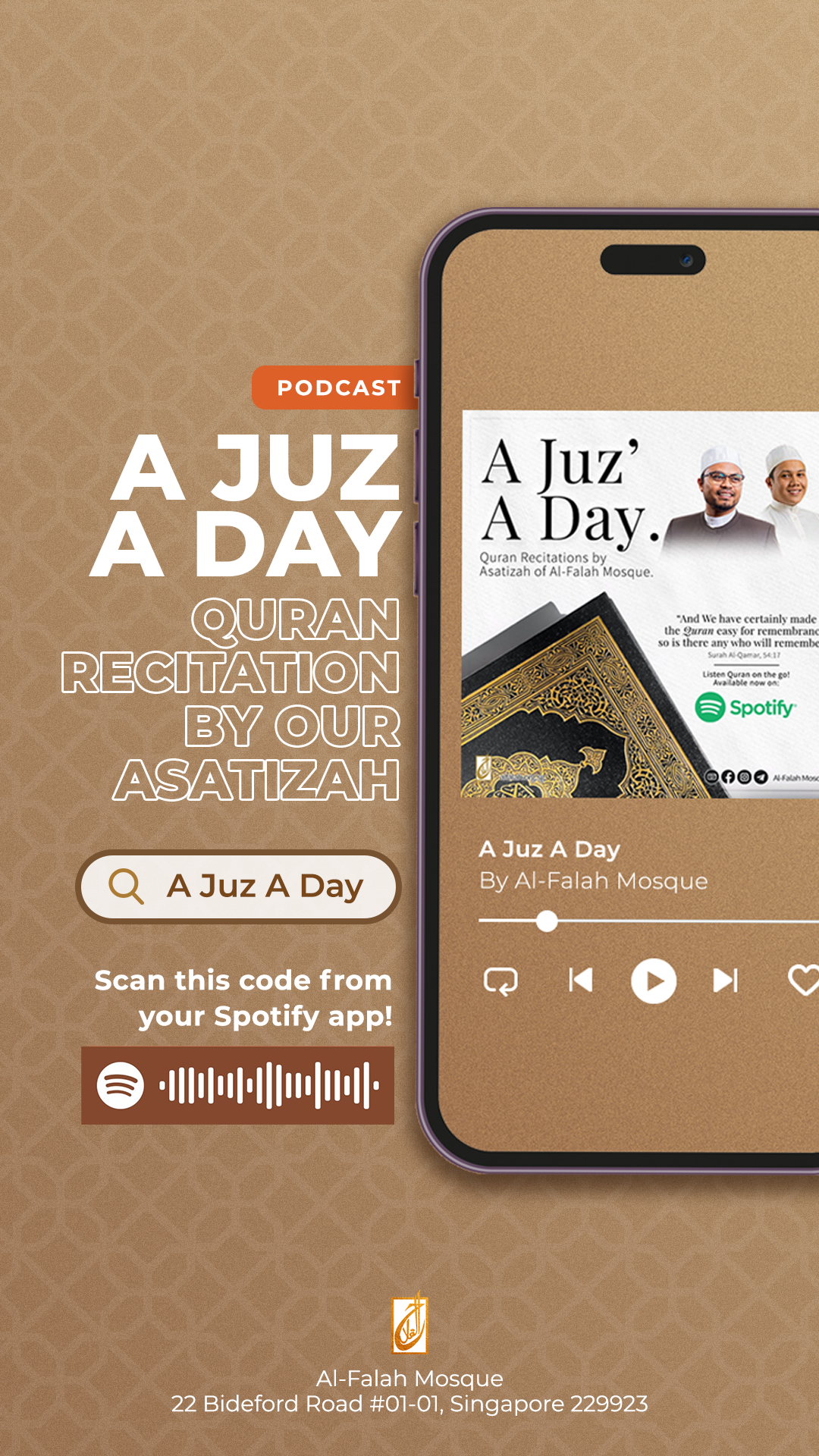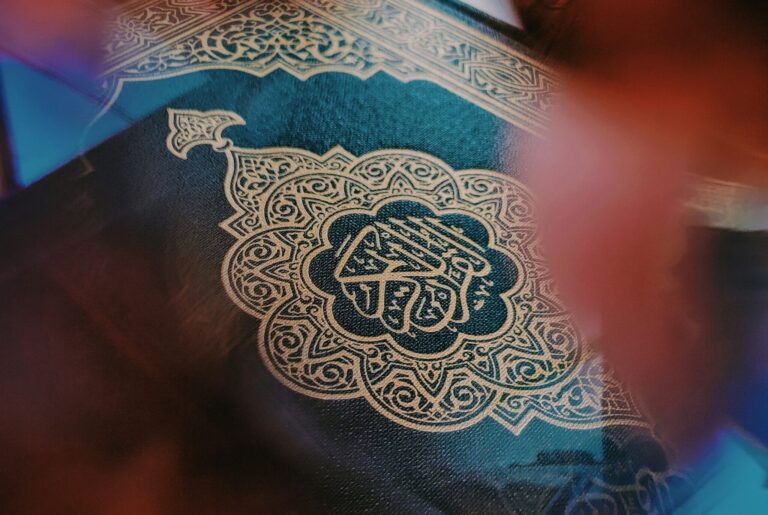Ramadan, Articles
How To Flourish In Ramadhan

How to Flourish in Ramadan
The long-awaited time of the year is already around the corner, and some of us may have already started counting down the days to this blessed month, Ramadhan. Like every other special occasion, it should be celebrated, cherished, and most importantly, given its due rights. In this article, I will discuss how to prepare and flourish in Ramadhan, how to make the most of this blessed month, and incorporate the spirit of Ramadhan into our daily lives.
As Muslims, it is essential that we understand and celebrate the significance of Ramadan. If we fail to appreciate Ramadhan for all that it is and how it can bring us closer to Allah, we will never be able to accomplish what is expected of us.
Allah SWT stated clearly one of the objectives of fasting in Ramadhan in Surah Al-Baqarah, verse 183:
يَٰٓأَيُّهَا ٱلَّذِينَ ءَامَنُواْ كُتِبَ عَلَيۡكُمُ ٱلصِّيَامُ كَمَا كُتِبَ عَلَى ٱلَّذِينَ مِن قَبۡلِكُمۡ لَعَلَّكُمۡ تَتَّقُونَ
“O you who have believed, decreed upon you is fasting as it was decreed upon those before you that you may become righteous.”
Hence, it behooves us to recognize that the pinnacle of fasting in Ramadan is the attainment of righteousness and the cultivation of taqwa. Armed with this noble aim, we can craft a thoughtful blueprint to elevate our Ramadan journey in accordance with our individual abilities and strengths.
Pre-Ramadhan
We are encouraged to make lots of Dua that we will be granted the honor to meet Ramadhan. Our past righteous predecessors were said to spend six months making Dua to Allah SWT so that they are granted the opportunity to meet this blessed month, and spend the remaining six months praying to Allah that their deeds during Ramadhan will be accepted. Such were the etiquettes of our forefathers, even the thought of embracing Ramadhan and being connected to their Creator brought sparks of joy and happiness to them.
It was narrated that Abu Hurairah r.a. said:
“The Messenger of Allah SAW said: ‘There has come to you Ramadan, a blessed month, which Allah, the Mighty, and Sublime, has enjoined you to fast. In it, the gates of the heavens are opened and the gates of Hell are closed, and every devil is chained up. In it Allah has a night which is better than a thousand months; whoever is deprived of its goodness is indeed deprived.”‘ (Sunan an-Nasa’i 2106)
It is extremely helpful for us to prepare early for Ramadhan so that the first day of Ramadhan will not be a ‘trial’ session or come as a shock or a challenge to us. Preparing for Ramadan in advance, both in terms of fasting and strengthening our Sunnah practices, will make the month more manageable and help us know where we stand regarding our strengths and weaknesses. Like training for a marathon, we cannot just “wing it” on race day; rather, we need to put in the time and effort over the preceding weeks or months to ensure that we will be at our peak on race day.
Remembering to take care of our physical, mental, and spiritual health is crucial for achieving and maintaining overall well-being. Each of these components is equally important and interrelated. To perform at our best, we need all three. You can learn more about ways to improve your health by exploring methods such as eating well, staying active, and engaging in practices that promote mindfulness and connection with Allah.
During Ramadhan
In giving Ramadhan its due rights, it is incumbent upon us to be present and aware of its virtues, significant events, and its special highlights. In such a way that we would always have something to look forward to and prepare for during the month of Ramadan. Likewise, keep in mind that each day of Ramadhan is exceptional and provides us with an opportunity to harvest immense rewards and become closer to Allah SWT. Every good act is rewarded multiple times more in Ramadhan than in other months of the year, which should motivate us to sail even deeper into goodness than before.
We should approach this auspicious month with humility, submission, and repentance. Being fully conscious that we have sinned and that we need to be better Muslims, we should take advantage of this month to repent and turn a new leaf. Rasulullah SAW reminded us in his saying:
عَنْ أَبِي هُرَيْرَةَ ـ رضى الله عنه ـ عَنِ النَّبِيِّ صلى الله عليه وسلم قَالَ: “ مَنْ صَامَ رَمَضَانَ إِيمَانًا وَاحْتِسَابًا غُفِرَ لَهُ مَا تَقَدَّمَ مِنْ ذَنْبِهِ، وَمَنْ قَامَ لَيْلَةَ الْقَدْرِ إِيمَانًا وَاحْتِسَابًا غُفِرَ لَهُ مَا تَقَدَّمَ مِنْ ذَنْبِهِ. ”
Narrated Abu Huraira r.a. that the Prophet SAW said, “Whoever fasted the month of Ramadan out of sincere Faith (i.e. belief) and hoping for a reward from Allah, then all his past sins will be forgiven, and whoever stood for the prayers in the night of Qadr out of sincere Faith and hoping for a reward from Allah, then all his previous sins will be forgiven.” (Sahih al-Bukhari 2014)
As we consider this hadith in light of the splendor of Ramadan, we gain a deeper understanding of what Rasulullah SAW meant when he said, “Whoever is deprived of its (Ramadhan’s) goodness is indeed deprived.” If we fail to make the most of this blessed month, it is (and very literally so) as though a line-up of enormous doors of goodness are opened for us, and that we are only required to make a few steps towards entering it, and that we choose not to; what a waste!
Therefore, special events such as the descent of the Quran, the night of decree, and the last ten nights of Ramadhan should be on our look-out-for list. We can look forward to enhancing our ibadah and reflecting on its significance during these days and nights. Because we all have distinct strengths when it comes to doing good, we should strategise and use them to our advantage.
Those who are more reserved, for instance, may find that the month of Ramadan is the most conducive period for muhasabah and self-reflection. They may place the greatest importance on spending quality time with their immediate family members, particularly during sahoor and breakfast, and being of service to them.
For those who are extroverted, Ramadhan would be the best time for them to involve themselves in community service, meet new people, and do beneficial programmes. Volunteering in mosques, and welfare organisations will come effortlessly to this group of people.
Let us explore ways to be the most beneficial during Ramadhan, regardless of our personality type. And find ways to strengthen both our relationship with Allah SWT and our relationship with His creations.
Exiting Ramadhan
At this stage (the last ten nights of Ramadhan), we are at the last lap of our spiritual marathon. Some of us might feel exhaustion creeping in, or we might feel completely burnt out. Despite that, we tell ourselves that these are the last ten nights of Ramadhan, and this is the period where we will (and have to) push ourselves a little bit more with the intention that we will be granted the chance to meet the night of decree or Laylatul Qadr. This is one of the main highlights of Ramadhan! We may notice that the people around us start to do longer Qiyamulail, spend more time with the Quran, and increase their commitment to charity. But on the other hand, we may feel frustrated that at this crucial period, we are already completely burnt out.
I would like to put it out there that it is totally okay to feel tired or burnt out or feel that we might not be in our best state at any point in time in Ramadhan. However, do not let these feelings extinguish our determination to still pick ourselves up and move forward, however slow or wearing it may be. Remind ourselves of this hadith:
Abu Huraira r.a. reported that the Messenger of Allah SAW said, “Take up good deeds only as much as you are able, for the best deeds are those done regularly even if they are few.” (Sunan Ibn Majah 4240)
Make a mental note of our feelings and our ups and downs at the different stages of Ramadhan and use it to strategise and improve in the upcoming Ramadhan. Yes, this marathon does not end after a month, mind you, this marathon lasts for a lifetime. The goal is not to only be better Muslims during Ramadhan but to also bring this version of ourselves out of Ramadhan, in our daily life, until we meet the next Ramadhan and become better than before, and the cycle goes on. The month of Ramadan is analogous to the blossoming season for flowers; at this time, people blossom magnificently and continue to blossom more gloriously with each passing season.
Post Ramadhan
When the blessed month of Ramadan draws to a close, we express our thankfulness to Allah SWT by reciting the takbeer and celebrating Eid joyfully. We are thankful not because Ramadan is over, but because it has allowed us to grow spiritually and become closer to Allah SWT. It would be extremely unreasonable for us to overtime forget the gift that He has given to us, and for our deeds to gradually become as if they had never encountered the month of Ramadan.
Ultimately, Ramadhan is a learning school for us. A school where we discover our deepest potential in doing good and restraining ourselves from the bad. A school where we realise that we can be immensely generous, that we can lead our lives with minimal enjoyment of this world, that our tongue can be pure and only gives out good, that we can perform twenty raka’at of prayer every night, that we can wake up and spend some time before Fajr, that we can be empathetic to the needs of the people around us and so much more.
Consider it the start of a journey, not just a series of pit stops in your life. If you can do it for a month, you can do it for the rest of the year, in Shaa Allah. Having this realisation affirms that we can go beyond the ordinary and have a special connection with Allah SWT; we can be the people of taqwa and thus, fulfilling the goal of fasting during this blessed month.
Disclaimer
Support Our Dakwah










